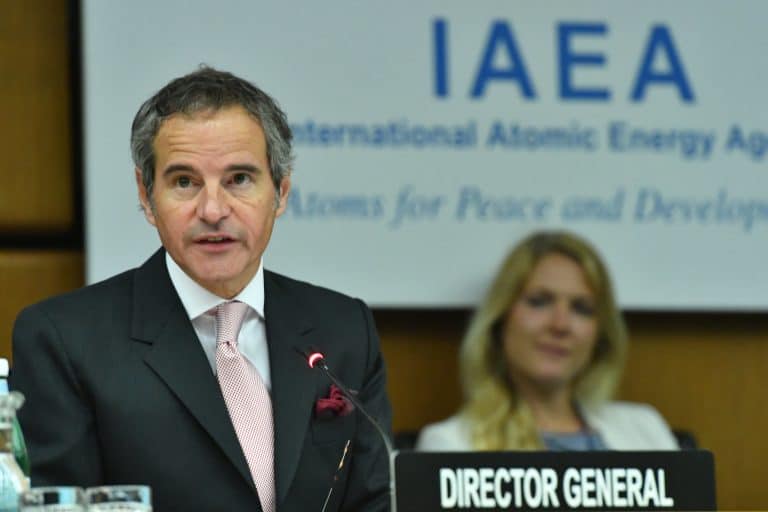
This article was originally published by Radio Free Europe/Radio Liberty and is reprinted with permission.
Iran has agreed to allow international inspectors to service surveillance cameras at its sensitive nuclear sites and to continue filming there, averting a diplomatic showdown this week.
The announcement was made September 12 after talks in Tehran between Rafael Grossi, head of the International Atomic Energy Agency (IAEA), and Mohammad Eslami, head of the Atomic Energy Organization of Iran.
Upon arriving back in Vienna, Grossi said the agreement was “a measure to allow time for diplomacy.” He stressed, however, that it was not “a permanent solution.”
The Tehran talks were aimed at easing a standoff between Iran and the West just as it threatens to escalate and scupper negotiations on reviving the Iran nuclear deal
“We agreed over the replacement of the memory cards of the agency’s cameras,” Eslami was quoted as saying by Iranian news agencies.
“IAEA inspectors are permitted to service the identified equipment and replace their storage media which will be kept under the joint IAEA and AEOI seals in the Islamic Republic of Iran,” the nuclear bodies said in a joint statement.
“I am glad to say that today were able to have a very constructive result, which has to do with the continuity of the operation of the agency’s equipment here,” Grossi said. It “is indispensable for us to provide the necessary guarantee and information to the IAEA and to the world that everything is in order.”
It was Grossi’s first visit to Iran since hard-line President Ebrahim Raisi took office in August.
Talks between Iran and world powers over limiting Iran’s nuclear program in exchange for sanctions relief have been idle since June.
Earlier this month, the IAEA said in a report that Iran had continued to increase its stockpile of highly enriched uranium.
It also said that verification and monitoring activities have been “seriously undermined” since February, after Iran refused to let inspectors access IAEA monitoring equipment.
Western powers must decide whether to push for a resolution criticizing Iran and raising pressure on it for stonewalling the IAEA at next week’s meeting of the agency’s 35-country board of governors. A resolution could jeopardize the resumption of talks on the deal, as Tehran bristles at such moves.
Under the 2015 deal between Iran and major powers, Tehran agreed to restrictions on its nuclear activities in exchange for the lifting of sanctions.
President Donald Trump pulled the United States out of the deal in 2018, reintroducing painful economic sanctions. Iran responded as of 2019 by breaching many of the deal’s core restrictions, like enriching uranium to a higher purity, closer to that suitable for use in nuclear weapons.
0 comments :
Post a Comment